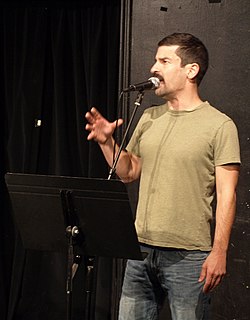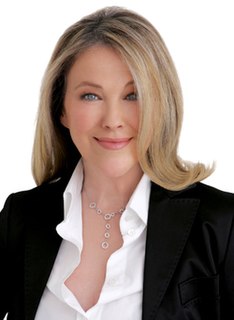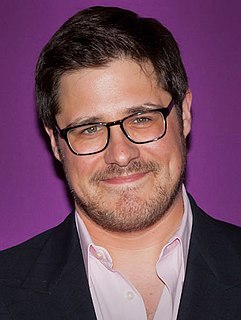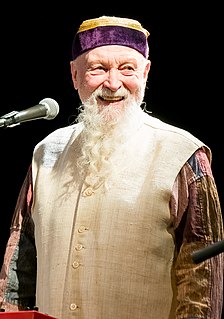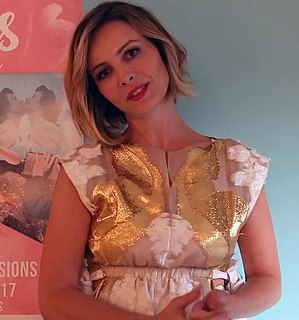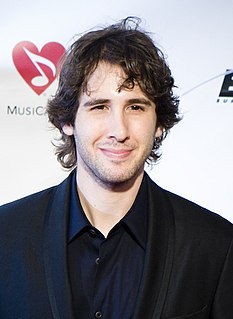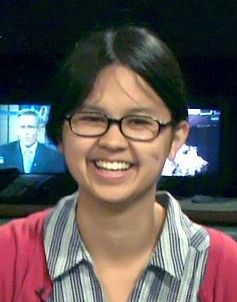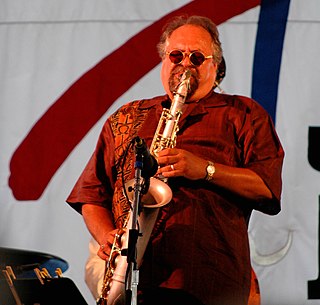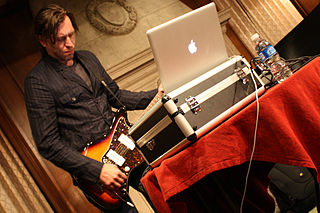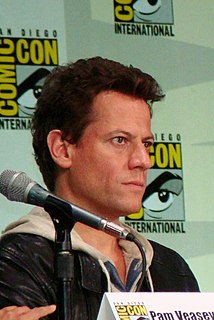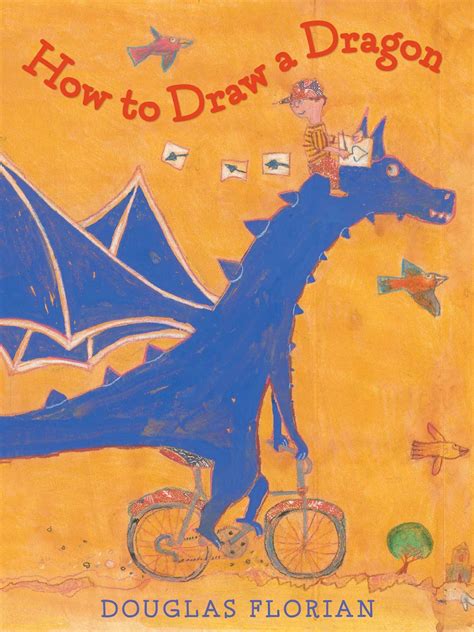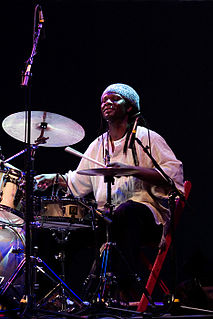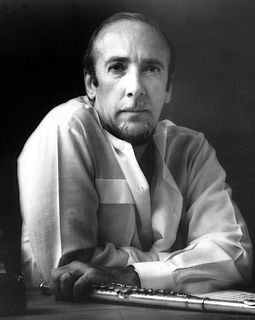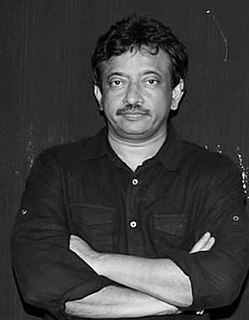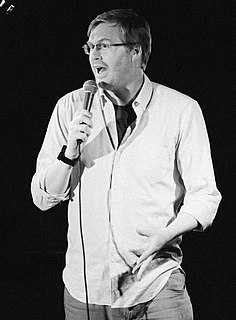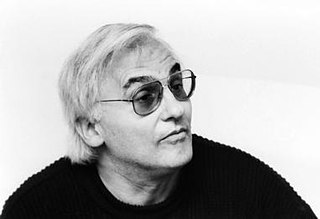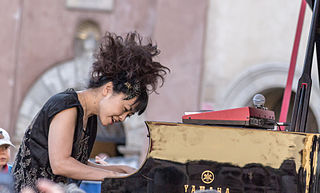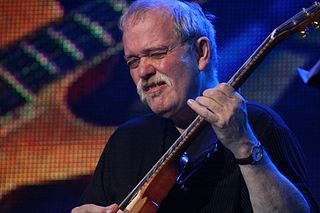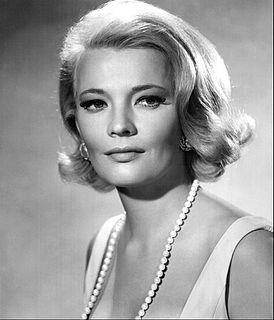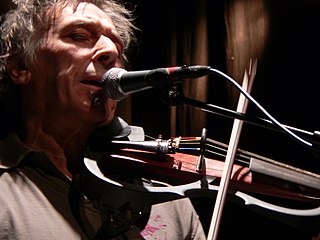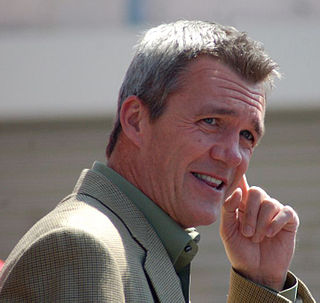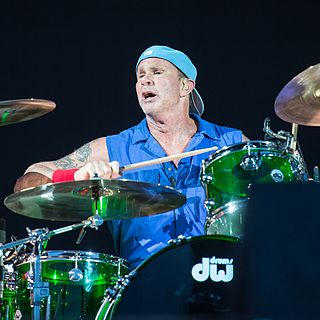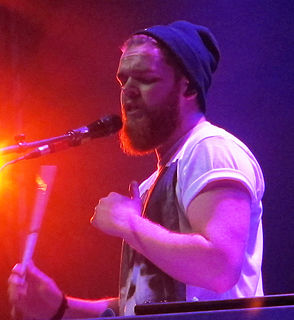Top 204 Improvising Quotes & Sayings - Page 3
Explore popular Improvising quotes.
Last updated on April 15, 2025.
...this is my dilemma. I'm a guy who makes things up as I go along, so nothing is ever finished - there are so many layers. So when you solo, yeah, you might get into one thing, but then, hey, everything has implications! You can hear the next level. And that's how I feel about improvising - there's always another level.
I do a little improv in my shows. Kind of like our movie, I'll do beats and ideas of dialogue, but I think there's less pressure because it's a live show. If you mess up, the audience laughs because we don't really know what we're doing. But as far as shooting, that was very scary, trying to make a point and drive the film. It definitely helped improvising.
Improvising is writing, too - there was no music and now there's music. So that's composition. And any time you take any sort of a performance liberty, you're making a compositional choice. I don't know a serious performer who hasn't made compositional decisions, who hasn't engaged in the art of composition.
I'm trying to be expressive on my instrument and conduct as I'm improvising. So I'm conducting with the melodies and the rhythms that I play. And so it's a very organic way. It's a lot like Charles Mingus played, cuing people in from what you play and how you play it rather than standing in front of a band, conducting and pointing.
I'm by no means a pianist. I think that's safe to say, but the piano, for me, I would say it's the enabler. It gave me what I needed and gives me what I need in order to write a song. And I think playing or improvising on the piano is where I feel most liberated and sort of less conscious of all my insecurities or inadequacies.
I end up improvising in almost everything to some degree, 'cause it's often necessary on movies. The script is one thing, and it's this kind of theory of what you're going to do, and then you get there on the day and you realize, "Oh, the script is not appropriate to this room, the door's over here."
Narrative nonfiction was not my forte. I always wanted to let my imagination run free, and the facts sometimes got in the way. At one point I wanted to illustrate Jack Prelutsky's enchanting poems. Unable to do that, I started devising and improvising my own poems, very raw at first. I immersed myself in verse, writing reams of stuff until it gelled.
A lot of improvisers mistakenly assume stand-up is awful, because there are a lot of stand-ups in the world that did not appeal to me. It was so easy to make a blanket statement when I was improvising only: 'Stand-up's terrible.' It's so ignorant and stupid to do that. But it's easy to do that. So that's where I came from.
At practically every level, the way I make comics is an act of improvising within structural boundaries. There's a rough plan, with a beginning, middle and an end, but how I get from one point to another is unknown at the outset, and a large part of what keeps me engaged. It's an exploration for me, and hopefully for the reader as well.
Sometimes you'll have great actors who aren't comfortable with improvising. Which can get pretty frustrating. But every actor's coming from a different place and they have their own strengths and weaknesses and your job is to sell them as two people in the same world. Some of them have to have their hands held and some I just let loose entirely.
No hawk swooping down upon his prey, no stag improvising new detours by which to trick the huntsman, no dog scenting game from afar is comparable in speed to the celerity of a salesman when he gets wind a deal, to his skill in tripping up or forestalling a rival, and to the art with which he sniffs out and discovers a possible sale.
When we were doing 'Freaks and Geeks', I didn't quite understand how movies and TV worked, and I would improvise even if the camera wasn't on me. I thought I was helping the other actors by keeping them on their toes, but nobody appreciated it when I would trip them up. So I was improvising a little bit back then, but not in a productive way.
The trouble with the jokes is that once they're written, I know how they're supposed to work, and all I can do is not hit them. I'm more comfortable improvising. If I have just two or three ideas and I know how the character feels, what the character wants, everything in between is like trapeze work.
John Cassavetes was there at night while I was working. After they [with his friends] discussed as much live TV as they felt they needed to, they started improvising scenes just for the fun of it and one of those scenes everybody got very interested in and it turned into Shadows [1959]. That movie was entirely improvised.
I think everybody came into it with the understanding that they would go through an experience that is literally not by the book, that is not executing the script and then going home, but living and breathing these characters and being in the moment with each other, and improvising and creating a lot of present-tense intensity between characters.
The Beatles came and everybody forgot about everything else. That was a friendly, together, hip interpersonal music, introducing electric sustain, and it captured the imagination of everybody. So improvising, even though it was in a very rich period in terms of impact on the public, the '6Os were very hard times on players financially.
I was so intimidated by the thought of improvising back in the '80s when I was in Chicago. I think the opportunity only even came up once that I can recall, and I turned down the offer. It was to go improvise in some club in the suburbs or something. Good God, I couldn't think of anything more frightening than to get up there without a plan.
The Chili Peppers do a lot of improvising, but it's within the framework of song structures. The Meatbats is from a purely instrumental standpoint. But when you hear the term 'instrumental music' you think it's real serious stuff and everybody's playing a million notes and it's about playing fast. That's not what we do.
